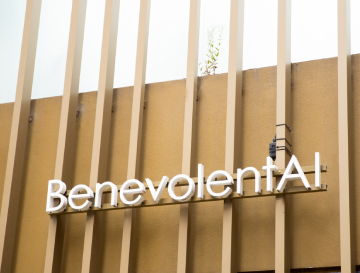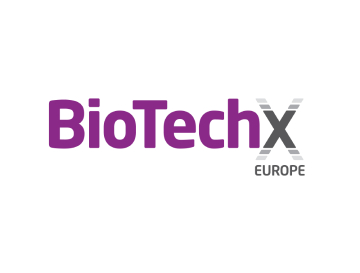- Early in the pandemic, BenevolentAI researchers identified Baricitinib as a potential treatment for COVID-19 and published the hypothesis in The Lancet on February 4, 2020.
- Data from the ACTT-2 clinical trial resulted in the FDA granting emergency use authorisation for baricitinib in combination with remdesivir to treat hospitalised COVID-19 patients by November 2020.
London, 9 April 2021: BenevolentAI, a leader in the application of AI and machine learning in drug discovery and development, congratulate Eli Lilly on results from its COV-BARRIER trial in 1,525 hospitalised COVID-19 patients demonstrating baricitinib reduces mortality by 38% (nominal p-value=0.0018), showing the largest clinical effect reported to date for a reduction in mortality in this patient population.
The COV-BARRIER results further validate BenevolentAI’s AI-derived hypothesis, first published in early February 2020, which prompted additional global trials and investigations into its efficacy as a treatment for critically ill COVID-19 patients. In the COV-BARRIER study, baricitinib was given in addition to the standard of care, which included dexamethasone in the majority of patients. The trial did not meet statistical significance on the primary endpoint, defined as a difference in the proportion of participants progressing to the first occurrence of non-invasive ventilation including high flow oxygen or invasive mechanical ventilation including extracorporeal membrane oxygenation (ECMO) or death by Day 28.
The significant reduction in mortality demonstrated in the COV-BARRIER trial follows several published studies confirming baricitnib’s therapeutic effect, such as those in EMBO Mol Med, Science Advances, J. Clin. Invest, New England Journal of Medicine, The Lancet Infectious Diseases and more. The results from the [ACTT-2 clinical trial https://www.benevolent.com/news/benevolentais-platform-derived-hypothesis-for-covid-19-treatment-validated-in-us-niaid-randomised-control-trial] led to baricitinib being granted FDA emergency use authorisation in November, making it the first AI-derived hypothesis for a COVID-19 treatment validated in a large international randomised trial that received Emergency Use Authorisation in this unprecedented timeframe.
Baricitinib is approved for the treatment of rheumatoid arthritis and other diseases. It is administered orally and additional research is ongoing to further evaluate the potential role of baricitinib in COVID-19, including NIAID's ACTT-4 trial (assessing the efficacy and safety of baricitinib or dexamethasone in combination with remdesivir in hospitalised adults with COVID-19 on supplemental oxygen), the UK’s RECOVERY trial and several investigator-initiated trials.
Media enquiries
Rajin Kang
About BenevolentAI
BenevolentAI combines advanced AI and machine learning with cutting edge science to decipher complex disease biology, generate novel insights and discover more effective medicines. Our unique computational R&D platform spans every step of the drug discovery process, powering an in-house pipeline of 25+ drug programmes from early discovery towards clinical phases. With several successful collaborations with leading pharmaceutical organisations, we are also the only AI-drug discovery company with a clinically validated approach, having discovered a leading repurposed drug candidate for COVID-19. BenevolentAI is headquartered in London with a research facility in Cambridge (UK) and a further office in New York, with a team of over 300 world-leading scientists and technologists progressing its mission to reinvent drug discovery and advance life-changing drugs through to the clinic.
Back to press releases and in the media


